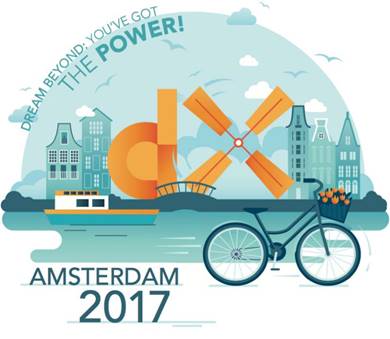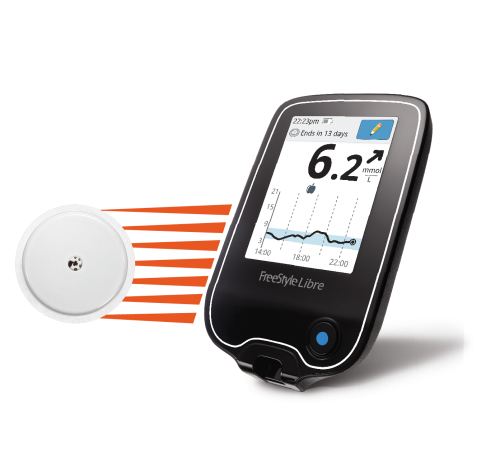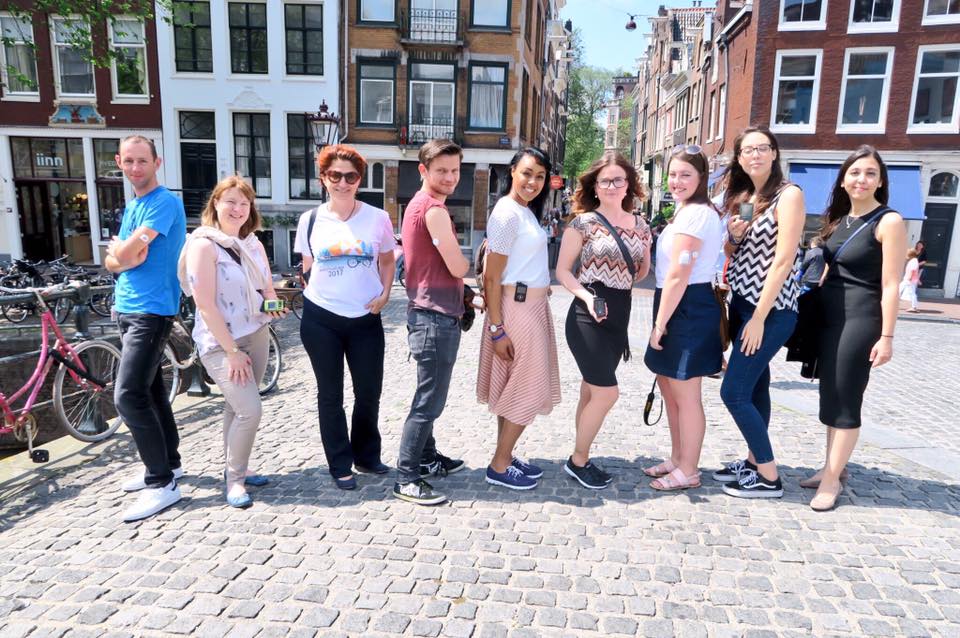The Irish Freestyle Libre Update
 Last weekend, I attended Abbott’s European Diabetes Exchange forum (‘dX’) in Amsterdam, Netherlands. The mission of dX is to create a place where bloggers from all over Europe can meet and exchange ideas in a fun and engaging way, and discuss matters that affect the diabetes community. And it certainly was that! However, the thought on a lot of minds attending, especially those of us from the UK and Ireland, was when will the Libre become reimbursed under our health service as with most other diabetes medications, supplies and devices?
Last weekend, I attended Abbott’s European Diabetes Exchange forum (‘dX’) in Amsterdam, Netherlands. The mission of dX is to create a place where bloggers from all over Europe can meet and exchange ideas in a fun and engaging way, and discuss matters that affect the diabetes community. And it certainly was that! However, the thought on a lot of minds attending, especially those of us from the UK and Ireland, was when will the Libre become reimbursed under our health service as with most other diabetes medications, supplies and devices?
Disclaimer: My travel and accommodation expenses were paid by Abbott to attend DxAmterdam, otherwise I wouldn't have been unable to attend. But all thoughts and opinions are my own. I wrote the beginning of this post before I went to DxAmsterdam.
 What’s included in this post;
What’s included in this post;
- A Diabetes Management Revolution
- Research on how the Libre is impacting diabetes managment
- What's new with Libre?
- Update on the Libre’s application with the HSE for inclusion on the Long Term Illness Scheme
A Diabetes Management Revolution
I do believe that when we look back on the launch of the Abbott Freestyle Libre, we will consider it as one of the important revolutions in diabetes management. Just like when the first blood glucose self monitoring meters came out.
Before the Libre, only a few people with diabetes had access to, continuous information about blood glucose levels, into the hands of many more people. Yes, people have to pay for it and it’s costly but people are paying for it! And yes, it’s still only a few people who have the Libre but that number seems like it’s increasing everyday.
Finally people can see what glucose levels are at any time, they have more information about how different types of food and exercise and stress does to glucose levels. People can see a high or low blood glucose even a head it off at the pass thus staying within a good range more.
And healthcare professionals can see this too. Things that we knew about our own diabetes are being validated with graphs and now health care professionals realise that they are learning from us as much as we learn from them. This is a team player equaliser making us, the person with diabetes a more equal team member.
In the 1980’s the Self monitoring blood glucose meter was a game changer - they gave people access to what their blood sugars were within 15 seconds. Maybe carb counting and the basal/bolus regime gave us better management.
In this decade, the Freestyle libre gave everybody access to continuous data. So thank you Abbott!
How is the Libre doing?
Tim from Abbott (I lost my speaker profile book so I don't have any titles for some of the people who presented to us) told us that, from their observations, on average people who use the Libre were scanning their blood glucose levels 16 times and that this was leading to reduced time in hypo and increased time within their blood glucose targets. And they have the research to prove it.
"The real-world data findings were presented today at the Advanced Technologies and Treatment for Diabetes (ATTD) congress in Paris. The data show a strong link between real-world use of FreeStyle Libre system and glucose control. The full data set was generated from 50,831 readers, which were used to scan 279,446 sensors. This constituted 409.4 million glucose measurements, 86.4 million monitoring hours and 63.8 million scans – representing more than 50,000 FreeStyle Libre users across the Europe region.
Key findings of the real-world data of the FreeStyle Libre system:
- More scanning: Users checked their glucose levels an average of 16.3 scans per day
- Across the spectrum of scan rates seen in the population, the following trends were observed as scan rates increased:
- Improved HbA1c: Average glucose level decreased as scan rate increased with estimated HbA1c decreasing from 8.0 to 6.7 percent
- Reduction in hypoglycemia: Time spent below glucose levels of 70, 55 and 45 mg/dL decreased by 15 percent, 40 percent and 49 percent
- Reduction in hyperglycemia: Time above 180 mg/dL (10.0 mmols) decreased from 10.5 to 5.9 hours per day
- Increased time in range: Time in glucose range (70-180 mg/dL) (3.9mmols - 10.0 mmols) increased from 12.0 to 16.8 hours per day"
Source: PR Newswire
What’s next for the Libre?
Abbott Diabetes Care are currently working on the pregnancy indication and will have more news soon. The Libre Link, which is not availible in Ireland yet, allows you to scan your sensor using your phone, is now uploadable to the following diabetes management apps;
Update on the Libre’s application with the HSE for inclusion on the Long Term Illness Scheme
No news is good news, right? Abbott submitted their application for inclusion on the Long Term Illness Scheme earlier in the year. The HSE acknowledged that they had received the application through parliamentary questions from our public representatives in the Dail in March 2017.
“It will be considered in accordance with the Health (Pricing and Supply of Medical Goods) Act 2013. The application will be assessed for listing under reimbursable items for people (aged 4 and above) with diabetes who intensively use insulin; namely those requiring multiple daily injections of insulin (MDIs).” From Abbott’s website.
My Abbott representative while attending DxAmterdam said that “the HSE had some follow up questions for Abbott which they have replied to.” However, late last week the HSE came back to Abbott with a couple more follow up questions, which Abbott intend to reply quickly too.
So it looks like it a bit of paperwork tag but that shouldn't be a surprise, should it?!? No one seems to know how long this process is going to take or how this process works. So we still wait and wait without any significant communication from the key players; this is probably the most frustrating part of this process for me - the lack of communication from the HSE or the voice of the diabetes community in Ireland.
So far, full reimbursement of the Freestyle Libre has been approved in France, Austria, Sweden and Finland. And partial reimbursement in Italy, Switzerland and Germany. My fellow bloggers in the UK say that the NHS is very close to approving it. Let's hope we are as close to it as they are in the UK!
